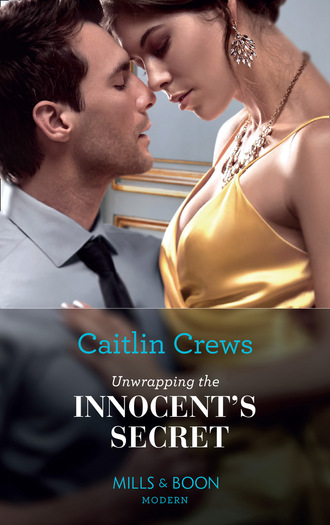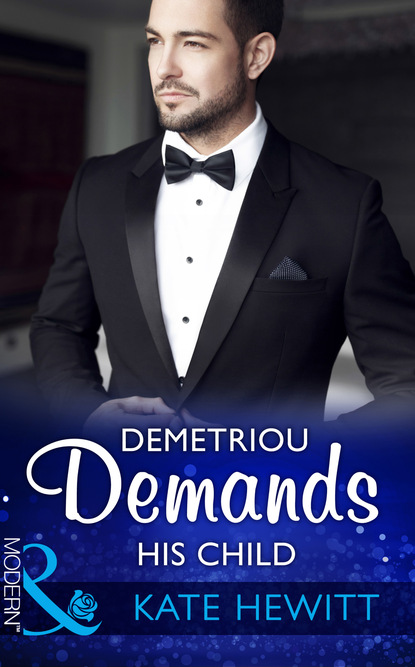
Полная версия
Unwrapping The Innocent's Secret
He had never made it to a ski resort. He’d spun out on a mountain pass after making a wrong turn. The clunker of a car he’d been driving—good for absolutely nothing save ejecting him through the windshield with great force—was the only reason he’d lived.
The car had burst into flames, and Pascal would have burned, too, had he not been tossed off into the unforgiving wilderness.
But even the fire was a blessing in disguise. It had alerted the villagers. They’d trooped out in the middle of the dark December night, collected his broken body and had settled him into what passed for the local hospital. The clinic connected to the abbey, where slowly, carefully, the nuns had nursed him back to health.
Pascal had been torn open, broken and out of his mind for weeks. It had taken him longer than that to heal. Then painfully learn how to move again when the casts came off.
And the greatest danger of it all was not the infections he risked or the bones that healed differently than they’d been. It was not his discharge from the military, or the entirely new life he was forced to face—and figure out while lying flat on his back—thanks to the wreckage of the old.
It was the fact that life in that forgotten village felt sweet. Easy. Good.
It had been the greatest temptation of his life to simply…remain.
And his favorite nun had been a part of that.
Not quite a nun, he corrected himself now, his hands deep in his pockets as he brooded at the fountain before him. She had been a novice of the order, young and sweet and uncorrupted—until she’d met him.
But when he thought of what happened between them, her cool smiles and soft hands, blooming into that one night of almost unbearable passion that still made his body stir after all these years—he couldn’t help but think that she had been the one to do the corrupting.
He was a master of the universe by any reckoning, and yet…here he stood. In a dark, forgotten corner of the greatest city on earth, the world literally at his feet, her face in his memories making the city dim.
It was an outrage. It was unacceptable.
Pascal headed toward his home, three stories of the top of a building that he had refurbished to suit his particular taste. Distinctively modern inside and an appropriately battered, ancient-looking facade.
It was not lost on him that for all intents and purposes, that description could have been about him.
When he reached his building, he didn’t go inside. He headed to his garage instead and somehow or another, almost without conscious thought, he found himself in one of his cars. Then heading north. This time he was neither as drunk nor as reckless as he’d been six years ago, but still. A man did not possess a car as fast as his if he did not plan to use it.
He drove for six hours, through what remained of the night and into the dawn. He stopped for breakfast and strong coffee when he reached Verona. When the espresso had revived him sufficiently, he called Guglielmo to tell him where he was.
“And may I ask, sir, why you are a great many kilometers away from the office? May I assume that your meeting last night did not go as well as you hoped?”
“You may assume what you like,” Pascal replied.
And as he lingered over another espresso, Pascal had ample time to ask himself what exactly he thought he was doing. The answer came to him after he’d gotten back on the road.
The months he’d spent in the care of that abbey was the only time in his life that he could recall straying so far from who he was, and he’d resented it ever since. Bitterly. Cecilia had been a kind of enchantment. A witch in a nun’s habit.
He’d told himself he was well rid of her when he’d come back down the mountain and remembered himself at last. He’d meant it. He’d gone about creating his company and doing every last thing he’d ever dreamed.
And yet…he couldn’t seem to move on. No matter how many empires he built, no matter how much richer he made himself, he was still haunted by her face.
It was high time for an exorcism.
Two hours later he found himself on the same mountain where he’d nearly died six years ago. It was a cold, crisp morning in another December, and he treated the winding mountain road with a great deal more respect than he had back then.
And this time he pulled off to the side of the road when he reached the top, because he could see the village before him.
It looked like a storybook, which only made him more determined to scrape it off whatever passed for his battered soul. It was like a dream in the morning light. Snowcapped mountains all around, and down in the small valley, fields cut by a tumbling river. What passed for the center of town was a clump of old buildings that dated from centuries past. The church stood at one end of the village with the abbey behind it and off to one side, the hospital where he had survived his recovery. He stared at it a long while, aware that his fingers were on his scars again.
Something in him turned over, with a low hum.
He told himself it was sheer horror that a man like him, raised in the middle of one of the most frenetic and sophisticated cities in the world, not to mention the luxurious lifestyle he now enjoyed, should ever have imagined that he could stay here.
Here.
It beggared belief.
He started up the car again, following the road down and around and around, until it reached the valley floor.
Where everything was exactly as he’d left it.
There was no reason that his heart should be clattering about in his chest as he drove the familiar road to the church. He would find the old priest and ask after Cecilia. He would almost surely find such a reunion faintly horrifying, and once he did, he would leave. The truth was, he’d come a very great distance for what he expected to take all of a few moments. He could have—and should have—sent Guglielmo. Or some other underling, who could have reported back on whether Cecilia was still here. For that matter, there had been no earthly reason for him to drive through the night like a man possessed. He could have taken his helicopter and landed it in the field behind the church, the same field he’d stared at week after week after week from his hospital bed.
No wonder he’d become fixated on the novice nun who’d cared for him. There had been nothing else to do. Except, Mother Superior had told him serenely, pray.
Pascal had not prayed then. He considered a prayer for deliverance now instead. Because he had surrendered to this fantasy for absolutely no good reason. This appalling tour through his own nostalgia.
“You might as well get it over with,” he growled at himself.
He unfolded himself from the low-slung sports car and stood beside it a moment. It was midmorning now, and though it was a clear day, the wind rushed down from the mountain peaks and sliced straight through him. He was dressed for a sophisticated dinner in Rome, not a trip to the hinterland.
He adjusted the jacket of his bespoke suit with two impatient tugs of his hands, and didn’t bother looking around. The village felt deserted. If memory served, what few villagers there were rarely congregated before the afternoon, if then. The nuns had chosen this valley well. It was the perfect spot for silent contemplation.
Pascal walked up the steps to the front door of the church. The weathered door stood open a crack, and he pushed his way inside, and then paused for a moment in the vestibule as he was walloped with memories.
It smelled the same. It looked the same. And it made his head spin as if he’d overindulged again.
What year is this? he asked himself.
The church might not have changed in the past century. But Pascal had changed tremendously since he’d left here. That was what he needed to remember.
He moved into the church proper, his gaze moving from the quiet, empty pews to the candles flickering in the alcoves. He saw no hint of the old, garrulous priest who he recalled so vividly from six years ago. The place was deserted—
But then he heard a noise. He took a few more steps and saw a washer woman on her hands and knees, scrubbing at the floor before the altar with her back to him.
She did not look around as he started down the aisle, and that gave Pascal ample opportunity to remember all the other times he’d done this exact same walk. All the times the priest had encouraged him to look within for a change, rather than continuing to look outside himself.
What is the point of all this power you seek if your heart is empty? the old man had asked him.
What do you know of either power or a heart? Pascal had replied. And he’d laughed.
But Pascal did not think the old man had been kidding. And those sneaky words were one more ghost that he couldn’t quite get to leave him alone.
He dropped his gaze from the stained glass in the small nave, and stood there, several feet away from the woman on the floor. He expected her to stop what she was doing, for she must have heard him, but she didn’t. Not even when he cleared his throat.
“If I might have a moment of your attention, signorina,” he said, his voice echoing back at him from all around.
She moved then. She sat back on her knees, and tugged the headphones out of her ears in one smooth motion. And Pascal was caught, somehow, in the smoothness of it.
But then she shifted around to face him, still down there on the stone floor. And everything…stopped.
That face.
Her face.
He’d been seeing it for years.
He knew every millimeter of her heart-shaped face, and the rich brown hair touched with gold that surrounded it. He knew that wide, generous mouth, and the delicate nose.
Most of all, he knew those eyes. Startling violet set above cheekbones made for poetry.
He knew her, his angel of mercy and the ghost that had haunted him for years.
It was Cecilia. His Cecilia.
“My God,” he whispered. “It’s you.”
“It’s me,” she replied, her voice flat. Hard. And that was when he noticed that those violet eyes of hers were bright on his. And murderous. “And you can’t have him.”
CHAPTER TWO
CECILIA REGINALD WAS no stranger to fear or disappointment.
It was right there in the name she’d been left with all those years ago when the English lady—her mother, presumably—had stayed in the only pensione in the village for the weekend, given a fake name, and then had left her three-year-old behind when she’d run off. Never to return.
Cecilia had always known that she was disposable, though she happily remembered very little of that first, lost life. Just as she’d always known that Pascal Furlani, who had discarded her when she was fully grown and able to recall every painful second of it, would be back.
At first, she had dreamed of his return. Wished for it, fervently, as if he’d disappeared from the village by mistake somehow. Because assuming he did the right thing—and she’d assumed he would then—would have solved her problems in a neat, orderly and time-honored fashion. Because his coming back would have made sense of the wreckage that her neat, orderly life had become in the chaotic wake he’d left behind him.
And because she had imagined herself in love with him.
But of course, that was not when he had deigned to tear himself away from his meteoric rise to wealth and prominence and return at long last. Not when she would have greeted his return with nothing short of delight. Instead, he came back now, when she wanted it least. And not only because she no longer believed in such childish notions as being in love.
“Who is him?” he asked. “And why do you imagine I would wish to have him, whatever that means?”
She didn’t miss the affront in that deep, rich voice of his she’d done her best to forget. Or try to forget.
Just as she didn’t miss the crack of power in it, either. It seared through her like a lightning strike and she added the unpleasant intensity of the sensation to the list of things she blamed him for.
Cecilia knelt there on the floor, her weight back on her heels, and her hands wet from scrubbing the stones. She had to crane her neck back to look up at him. Up and up and up, for he seemed much taller than she remembered him. While she imagined she looked shriveled and ruined and infinitely hardened by the years—because that was how she felt, certainly.
Back then she’d had faith. She’d believed that people were mostly good and life was certain to work out well, one way or another, even for abandoned girls like her.
She’d learned. Oh, how she’d learned.
Cecilia was fairly certain she wore every last lesson right there on her face.
Meanwhile Pascal looked like he’d stepped straight out of the pages of one of those glossy magazines she pretended she didn’t know existed and had certainly never scoured, just to see his face. He looked like the lofty, arrogant man he’d gone off to become, leaving her here to handle the mess he’d made. And the man in those magazines bore no resemblance whatsoever to the broken, half-wild creature she’d taken far too much pleasure in nursing back to health.
If there had ever been anything broken in Pascal Furlani, she couldn’t see it now. Were it not for the scars on the left side of his jaw that she knew continued down across his chest—though in her memory, they were far more raw and angry than the silver lines she could see today—she would have been hard-pressed to imagine that anything could ever have touched this man at all.
Much less her.
A thought that made her want to throw her bucket of dirty water at him. Preferably so it could damage that overtly resplendent suit he wore with entirely too much unconscious, masculine ease.
God, how she hated him.
The trouble was, it had been easy to scoff at those pictures of him. To tell herself that she was better off without a man who would go to such places, with such people, and dress the way he did when he was photographed. So breathlessly, deliberately fancy, which even she knew cost the kind of money she would never, ever have. Or even be near. The kind of money that was so dizzying she wouldn’t want to have it. It was corrosive. Cecilia didn’t have to live the high life in Rome to understand that.
Her life here had always been simple. Things were more complicated than she’d planned six years ago, but still. Overall, life was simple.
And nothing about Pascal Furlani was simple.
Neither was her reaction to him.
Cecilia had forgotten the way he filled a room. That antiseptic chamber in the clinic. This whole church. Just by standing there in all his state, his black eyes glittering.
The problem was he was so…arresting.
He had changed since he’d left the hospital, where he’d been so rangy and wiry. He’d filled in. He looked solid. Big. Strong, everywhere, with the kind of smooth, powerful muscles that quietly boasted of the worship he paid to his own body and the kind of power he could wield.
But Cecilia did not want to think too much about his body.
His dark hair was as she remembered it, cropped close to his head. It only made those glittering black-gold eyes of his all the more mesmerizing. Electric, even, like another lightning strike she had no choice but to endure while it lit her on fire.
He looked like a Roman centurion. His aquiline nose. His sensual lips. Something impassive and stern in the stark lines of him.
And she hated the fact that she knew how he tasted.
“You’re not welcome here,” she told him as evenly as she could from where she knelt there before him. “I already made that clear to your little spies. You didn’t have to come all the way up into the mountains yourself.”
He blinked, and made a small pageant out of it.
“I do not have spies, Cecilia.”
Her name in that familiar, charged voice of his rolled through her, igniting fires she would have sworn only moments before had been doused forever.
“You can call them whatever you like.” She had the urge to get to her feet, but ignored it, because scrambling up from her knees made it far more obvious that she was discomfited by their power differential. And she did not wish to be discomfited by Pascal Furlani. Not any more than she already had been. So she stayed put, meeting his gaze with defiance as if he was the one on the ground. “They said they were on the board of your company. You will forgive me if I assumed that meant they had something to do with you. Or do you really expect me to believe that two visits from you and your minions over the course of three weeks is a random coincidence?”
He didn’t appear to move and yet it was like a storm gathered around him. Cecilia was sure that if she looked down, she would see the fine hairs on her arms stand on end.
“Members of my board were here?” His voice was…darker. Midnight thunder.
It took her a moment to process the way he’d said here. As if this village where he’d nearly died and had come back to life again was so far beneath him that the very idea that anyone he knew from his fancy boardrooms might visit it appalled him.
Cecilia tried not to grit her teeth. “I will tell you what I told them. You have nothing to do with this place. Or with me. You left. And you don’t get to swan back in here now, no matter the reason. I won’t allow it.”
His dark eyes flashed. “Will you not?”
Something about that question, too silky by half and far more dangerous than it should have been, had Cecilia tossing her sponge into her bucket. With perhaps too much force, she reflected, when water sloshed over the sides.
“What do you want, Pascal?” she demanded.
Through her gritted teeth.
He looked down at her from his irritatingly great height. “I thought I came here to expel old ghosts.”
“I don’t believe you’d know a ghost if one appeared at the foot of your bed, wreathed in chains and moaning your name.”
Again he blinked as if he expected the movement of his eyelids to bring underlings running to serve him. Something that likely occurred with depressing regularity down in Rome.
“You do not believe that you have haunted me these past years, cara?” And she couldn’t say she cared for the way he used the endearment, either. Like a sharp-edged blade, and he wasn’t afraid to cut her. “I cannot say I believe it, either. And yet here I am, when I vowed I would never return.”
“I suggest you turn around, return to wherever you came from and uphold your vow.”
He did not take her suggestion. Instead, he stayed where he was and studied her for a moment.
“I do not understand why my board would be at all interested in you,” he said after what felt like an eternity. Or three. “I’ve never kept this part of my life a secret. Everyone knows I nearly died in the mountains and it changed me profoundly. I discuss it often enough. Why would they come here now? What could they hope to find here besides an old lover?”
Cecilia could hardly breathe. She couldn’t imagine what expression she wore on her face. An old lover. Was that what she was to him? Was that all she was?
But she kept her cool, no matter what it cost her, because she had to. She had to. She would not react to the tightness in her chest. The shortness in her breath.
Or that wild, betraying tumult in her pulse.
All that she could chalk up to fear, she told herself as Pascal gazed down at her, arrogant and impatient. It was nothing but panic, surely. The strange feeling, too much like some kind of anticipation, she felt that her worst fear was being realized in the extraordinary flesh whether she liked it or not.
She could understand that. It was her other reactions that concerned her more. Most especially that melting low in her belly that told her terrible truths about her true feelings about Pascal’s return that she wanted desperately to deny.
She got to her feet then, taking her time. And as she did, she was fiercely glad that she looked like who and what she was: a woman who washed floors for a living. She was nothing like the sorts of pampered women Pascal always had on his arm in the magazine pictures that were burned into her head. Cecilia knew she bore no resemblance to them and never would. She was not elegant. Her jeans were too big, decidedly ripped and horribly stained. She wore a ratty T-shirt beneath the long-sleeve buttoned-up shirt she’d tied off at her waist. Her hair was a disaster, no matter that she’d tied it back with an old scarf.
She expected she looked more or less tragic to a man like him. He was no doubt asking himself how he’d ever lowered himself to touch one such as her. She wondered it herself.
But this was a good thing, she told herself sternly. Because he needed to go away and never come back. And if she disgusted him now, well, she was only what she’d had to become. To survive him. If that got him to leave, great. Whatever worked.
She ignored the small pang that notion gave her.
“I expected you to be wearing a nun’s habit,” he said, and she opted not to hear the wicked undertone in his voice. Much less…remember the way she’d thrilled to it, once.
“I chose not to become a nun.” She did not say, because of you.
But his eyes narrowed anyway. “I thought that was your life’s ambition. Was it not?”
“People change.”
“You seem markedly changed, in fact. One might even say, distinctly hardened.”
“I’m no longer a foolish girl easily taken advantage of by traveling soldiers, if that’s what you mean.”
His head canted to one side, and his black eyes gleamed. “Did I take advantage of you, Cecilia? That’s not how I recall it.”
She eyed him. “Whether you recall it that way or not, that’s how it was.”
“Tell me, then, how precisely did I take advantage of you? Was it when you crawled into my hospital bed, threw your leg over me and then rode us both to a mad finish?”
She remembered it as he said it. She remembered everything. The wonder of taking him inside her. The madness, the dizzy whirl. His big hands wrapped around her hips and his intent, ferociously greedy gaze.
No one had ever explained to her that the trouble with temptation was that it felt like coming home, wreathed in light and glory.
That melting sensation grew worse, but she refused to let herself squirm the way she wanted to do.
Because this wasn’t about her.
“I always wondered what it would be like to have a conversation like this with you,” Cecilia said when she was sure she could manage to sound calm. Faintly bored. And it was not untrue, though as the years passed, the content of the conversation had changed in her head. She’d asked fewer questions. At some point she’d even become magnanimous. She’d practiced it enough in mirrors. “I find it’s less productive than I might have imagined. I don’t understand why you’re here. I am not haunted.”
Only furious, still and always, but she didn’t tell him that. He didn’t deserve to know.
“Can it be as simple as catching up with an old friend?” he asked as if he was…reasonable in any way. Palatable.
She made a scoffing sound. “Please. We were never friends.”
To her surprise, his mouth curved. “Cecilia. Of course we were.”
Something in her chest seemed to stutter to a halt then. Something different from the panic, the heat.
Because she remembered other things, too. Long afternoons when she would sit by his bedside, holding his hand or mopping his brow with a cool cloth. In those early days, when no one had known if he would make it, she’d sung to him. Songs of praise and joy interspersed with silly nursery rhymes and the like, all calculated to soothe.
When he grew stronger, he would tell her stories. He couldn’t believe that she had never been to Rome. That she had never been more than a couple of hours out of this valley, for that matter. Or not that she could recall. He painted pictures for her with his words, of ancient ruins interspersed with traffic charging this way and that, sidewalk cafés, beautiful fountains. Later, when she was no longer a novitiate and often found herself up in the middle of the night—either because she was worried about her future, or because sleep was a rarity for a woman in her position—she’d looked up pictures online and found the city he described. In bright detail.












